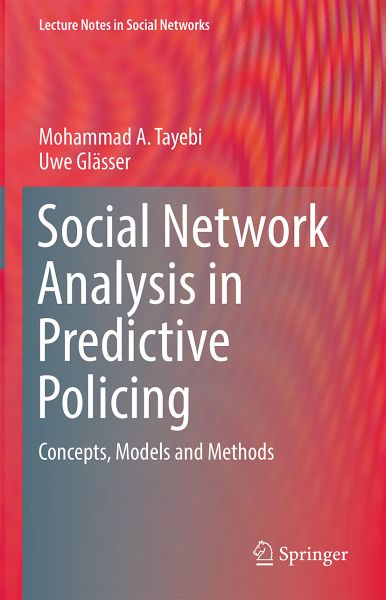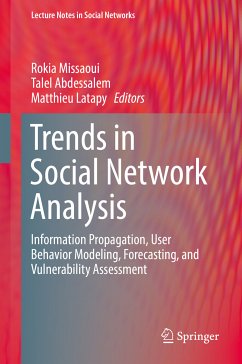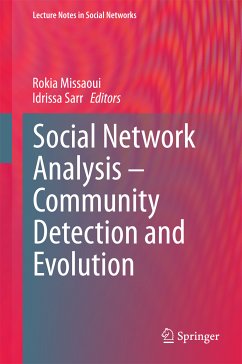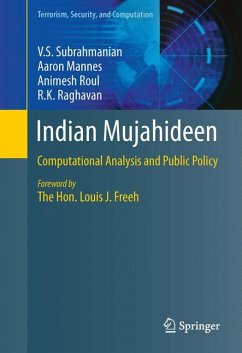
Social Network Analysis in Predictive Policing (eBook, PDF)
Concepts, Models and Methods

PAYBACK Punkte
36 °P sammeln!
This book focuses on applications of social network analysis in predictive policing. Data science is used to identify potential criminal activity by analyzing the relationships between offenders to fully understand criminal collaboration patterns. Co-offending networks-networks of offenders who have committed crimes together-have long been recognized by law enforcement and intelligence agencies as a major factor in the design of crime prevention and intervention strategies. Despite the importance of co-offending network analysis for public safety, computational methods for analyzing large-sca...
This book focuses on applications of social network analysis in predictive policing. Data science is used to identify potential criminal activity by analyzing the relationships between offenders to fully understand criminal collaboration patterns. Co-offending networks-networks of offenders who have committed crimes together-have long been recognized by law enforcement and intelligence agencies as a major factor in the design of crime prevention and intervention strategies. Despite the importance of co-offending network analysis for public safety, computational methods for analyzing large-scale criminal networks are rather premature. This book extensively and systematically studies co-offending network analysis as effective tool for predictive policing. The formal representation of criminological concepts presented here allow computer scientists to think about algorithmic and computational solutions to problems long discussed in the criminology literature. For each ofthe studied problems, we start with well-founded concepts and theories in criminology, then propose a computational method and finally provide a thorough experimental evaluation, along with a discussion of the results. In this way, the reader will be able to study the complete process of solving real-world multidisciplinary problems.
Dieser Download kann aus rechtlichen Gründen nur mit Rechnungsadresse in A, B, BG, CY, CZ, D, DK, EW, E, FIN, F, GR, HR, H, IRL, I, LT, L, LR, M, NL, PL, P, R, S, SLO, SK ausgeliefert werden.
Alle Preise in Euro und inkl. der gesetzl. MwSt. | Innerhalb Deutschlands liefern wir preisgebundene Bücher versandkostenfrei. Weitere Informationen: bitte hier klicken
Support
Bitte wähle dein Anliegen aus:
Rechnungen
Bestellstatus
Retourenschein
Storno












